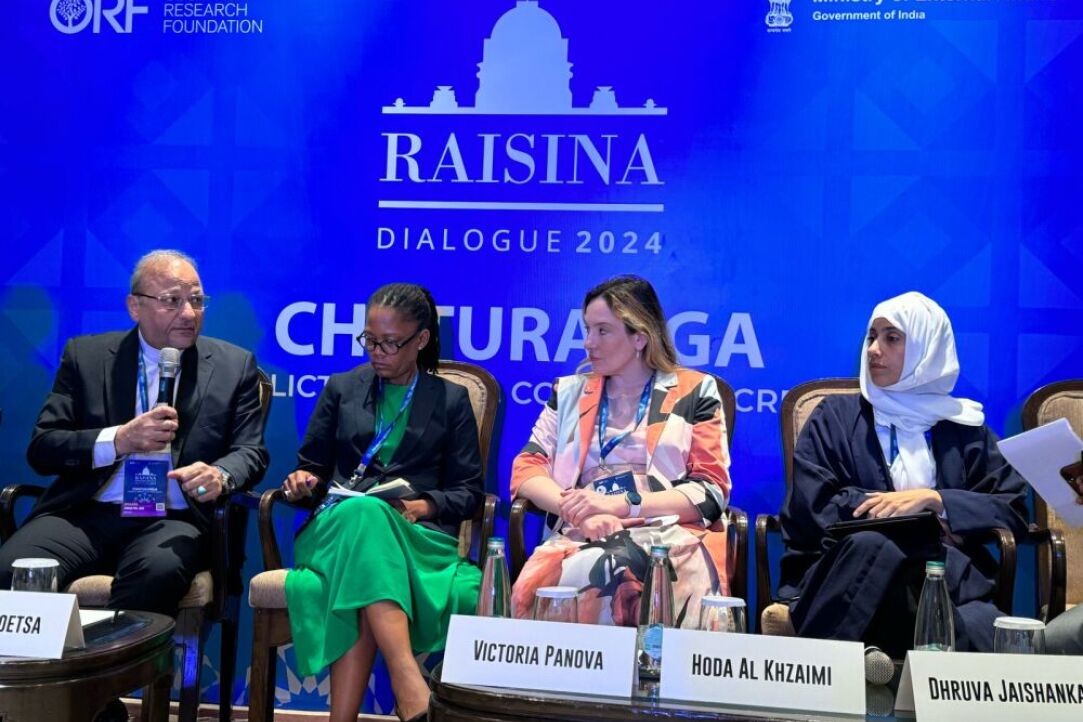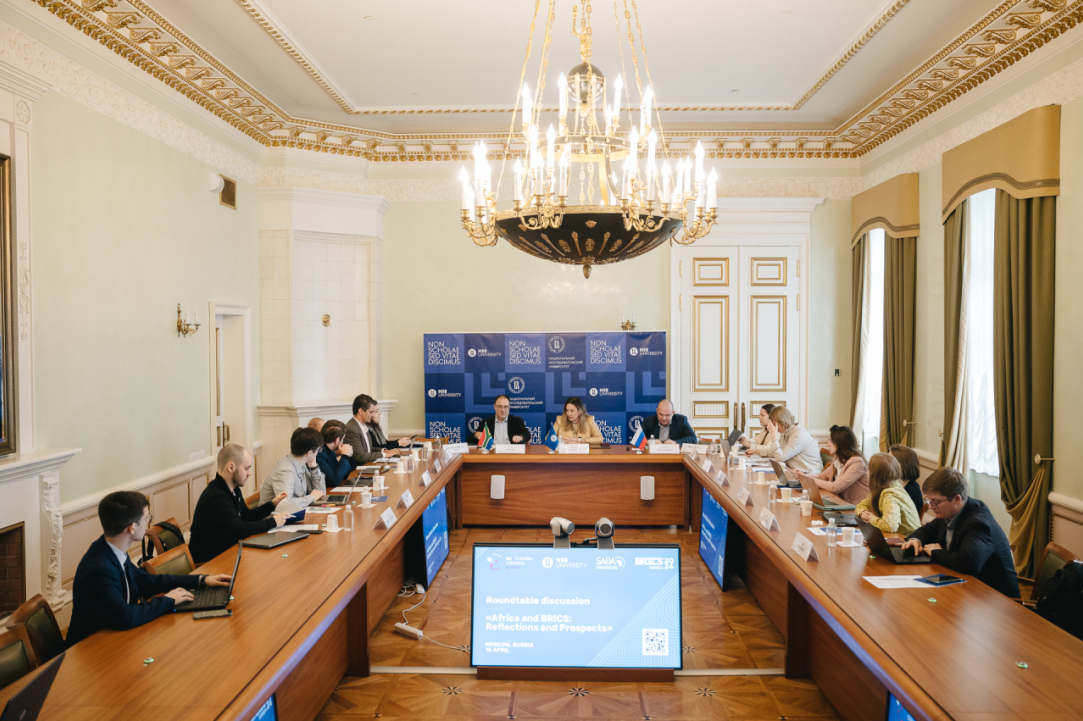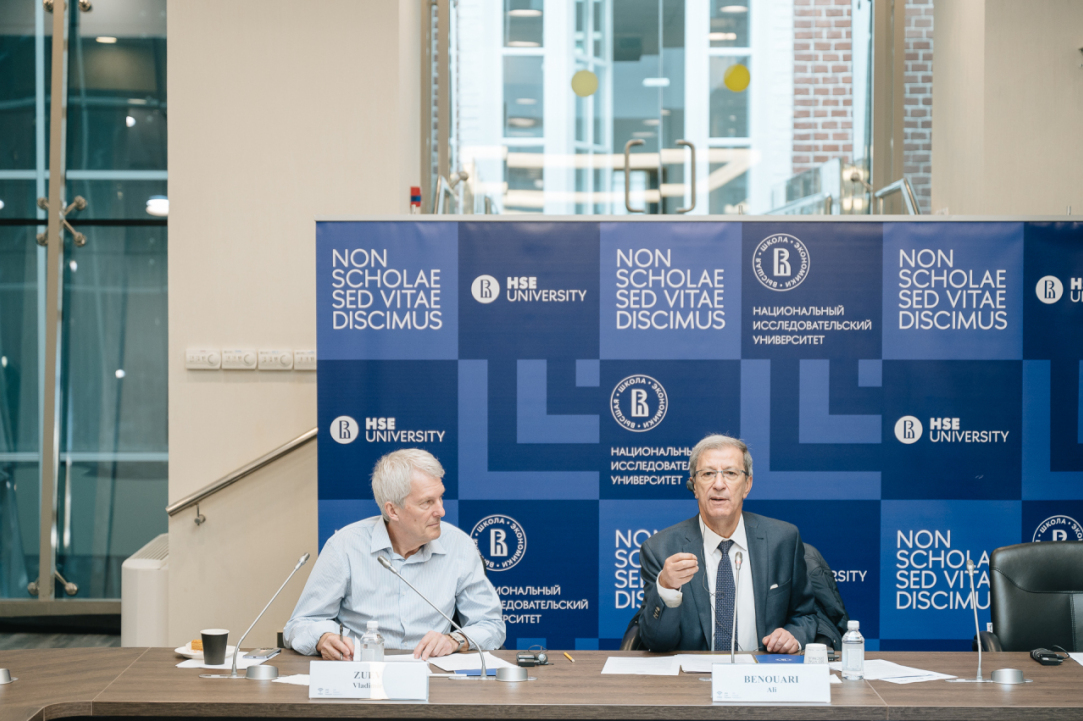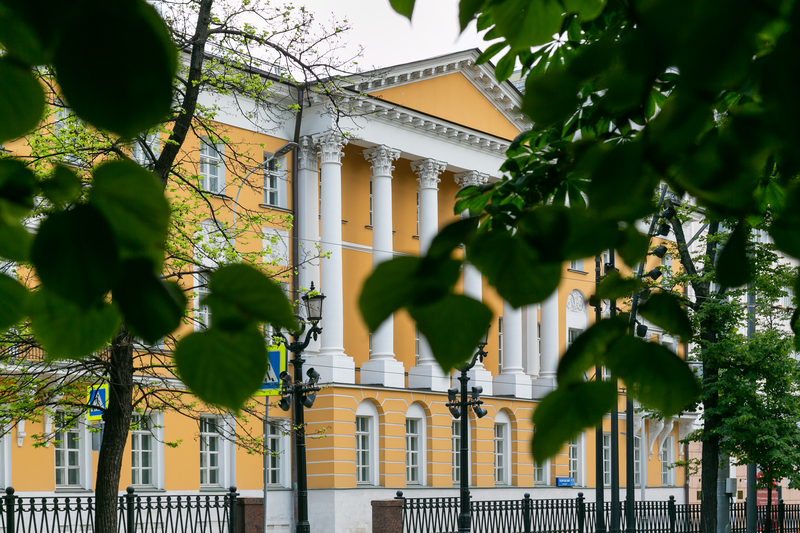
HSE Strengthens Cooperation with India and Creates Opportunities for Dialogue between Experts
Following the visit of the HSE University delegation to New Delhi, cooperation agreements with leading Indian universities were finalised. Similarly, a number of expert events, consultations and negotiations on the development of comprehensive strategic cooperation with Bharat took place. The HSE University delegation also participated in the Raisina Dialogue, one of the largest international expert forums.
.jpg)
Artificial Intelligence Tested by Kant Philosophy
The Baltic Federal University (Kaliningrad) recently hosted an International Congress entitled ‘The World Concept of Philosophy’ in honour of the 300th anniversary of the birth of the philosopher and thinker Immanuel Kant. The event brought together about 500 scientists and experts from 23 countries. HSE Rector Nikita Anisimov took part in the opening plenary session of the congress titled ‘Critique of Artificial Intelligence: Being and Cognition in the Context of Artificial Intelligence Development.’

Immortal Cells and Mathematics Reveal Mechanism behind Coronavirus Infection
A mathematical model has helped describe the course of infection caused by two variants of coronavirus: Omicron and Delta, and explain the differences between them. It appears that the cell entry rate is lower for Omicron, allowing infected cells ample time to alert neighbouring cells of the threat and trigger the activation of their innate immune response. In the future, the developed model could be employed to investigate any other variant of COVID-19, potentially leading to effective strategies for combating new hazardous strains, such as Pirola and JN.1. The findings from the study conducted with the participation of HSE researchers have been published in PeerJ.

HSE Hosts Round Table ‘Africa and BRICS: Reflections and Prospects’
On April 15, 2024 HSE University hosted a roundtable discussion ‘Africa and BRICS: Reflections and Prospects.’ The event featured leading experts from the South African Institute of International Affairs (SAIIA) Steven Gruzd and Gustavo de Carvalho and was moderated by HSE Vice Rector and Head of the BRICS Expert Council–Russia Victoria Panova.

Workaholism Helps Young Narcissists Boost New Venture Performance
An international team of researchers including Professor Galina Shirokova, Director of the Strategic Entrepreneurship Centre at HSE University in St Petersburg, and her students Nailya Galieva and Diana Doktorova, examined the impact of narcissism on young entrepreneurs' success. The authors have demonstrated that a company founder's workaholism can amplify the influence of narcissism on a new venture's performance.

Expedition to the Himalayas: What To Expect
At the end of April, six students of HSE University-St Petersburg will go on an expedition to the Himalayas, jointly organised with the University of Delhi. They will be collecting data about the anthropogenic impact on the ecosystem of this region, as well as its natural resources and environmental sustainability.

Creating a New International Monetary Order: Experts Discuss Financial Issues of BRICS Countries at HSE University
On April 10th, 2024, a strategic session on monetary and financial cooperation among the majority of world countries was held at HSE University. The event was organised by the BRICS Expert Council–Russia. The main expert at the session was Ali Benouari, formerly holding positions as Algeria's Minister of Treasury and an expert at the Committee on Public Debt, now an advisor to Algeria's Ministers of Finance and Economy.

'The Teams Engaged in The New Projects Have Every Opportunity to Achieve Exceptional Scientific Outcomes'
HSE University has announced the results of the first Competition of Joint Basic Research Projects 'International Academic Cooperation' held from December 11, 2023, to April 8, 2024. Highly successful research teams at HSE University, having extensive experience in collaborating with international partners, took part in the competition. A total of 25 applications were submitted from departments across HSE University's campuses.

First in Russia Dissertation Council for Asian and African Studies Established at HSE University
Chaired by Dmitri Bondarenko, Corresponding Member of the Russian Academy of Sciences, Deputy Director of the RAS Institute of Africa, and Director of theInternational Centre of Anthropology at the HSEFaculty of Humanities, the Dissertation Council comprises prominent Russian Orientalists and Africanists from HSE University and other leading institutions.

Production of the Future: AI Research Centre Presents Its Developments in Manual Operations Control Systems
Researchers from the HSE AI Research Centre have built a system for the automated control of manual operations, which finds application in industrial production. The system facilitates the process of monitoring objects and actions, as well as controlling the quality of their execution.

